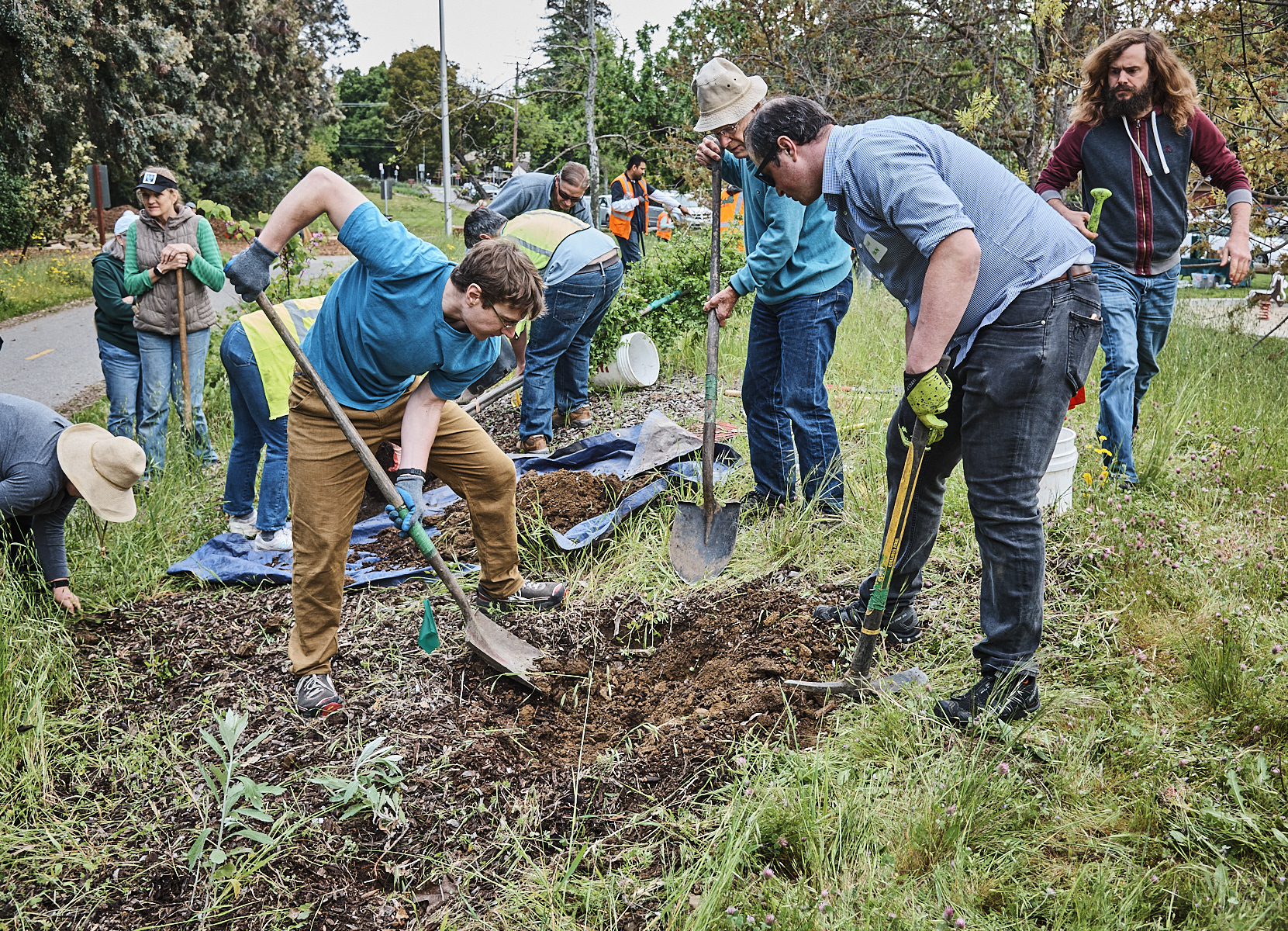Canopy Thrives, with County Support
SAN JOSE – Support from the County of Santa Clara is helping Canopy, a nonprofit organization focused on tree planting and stewardship, education, and advocacy, not only forge ahead but find a way to thrive during the COVID-19 pandemic.
In June 2020, the County Board of Supervisors approved a three-year agreement, at Supervisor Joe Simitian’s urging, to fund the expansion of Canopy’s education and advocacy programs in the County’s northern cities.
The environmental group joined the County’s quest to build a comprehensive urban forest, which can lead to cleaner water and air, habitat restoration, energy conservation, better stormwater control, reduced greenhouse gas emissions, and carbon sequestration.
Simitian said he was motivated to support the program because he wanted to see tree planting services and stewardship programs for public and private residents, corporations, and institutions in the North County communities he represents.
“I’m a long-time admirer of Canopy’s work to grow the urban forest, and to engage residents and youth in creating greener, healthier communities,” said Simitian. “What I’ve always appreciated about Canopy is that they get the whole community involved. That’s the mark of a truly grassroots organization.”
With County support, Canopy’s adult education programs in the last 18 months have drawn over 1,000 participants. Executive Director Catherine Martineau noted that the County’s grant funding allowed Canopy to shift most of its programming to a virtual platform, thereby allowing more people to participate.
“The timing of this grant enabled our team to pivot quickly during the pandemic and adopt virtual education,” said Martineau.
Community Forestry School, Canopy’s marquee program under the umbrella of its adult education classes, garnered more interest than ever before, drawing close to 60 participants, most of whom were from Santa Clara County, but with participants from neighboring counties as well.
The annual program is an eight-week-long crash course in urban forestry covering topics such as tree identification, species selection, and site assessments taught by an array of experts, including Canopy staff, arborists, and landscape architects. The program, which was offered virtually due to the pandemic, also includes hands-on and in-person fieldwork and volunteering opportunities.
By providing in-depth exposure to issues of environmental justice, participants are motivated to be even more engaged in their local communities. Teachers, students, retirees, and environmental advocates are among those who gravitate to Canopy’s programs.
Community Forestry School attracts people from a range of backgrounds. Some have no previous knowledge or experience with environmental topics, whereas others are experts in the field, such as arborists and environmental attorneys.
“These are people who have an ethic of service,” said Vanessa Wyns, Education Director at Canopy. “I think crafting a community-centered experience that they can really dive into, like they do with us, doesn’t just benefit them, but the community as a whole.”
The County grant also supported a series of webinars on specialized topics hosted by Canopy. These well-attended events, which were also held virtually, drew a diverse pool of more than 1,000 participants, including government officials, community members, landscape architects, and arborists.
According to Wyns, the feedback to the webinars is overwhelmingly positive. “People said they learned things they could use in their work life,” she said. “They had the opportunity to gain knowledge and get expert input on topics that they wouldn’t otherwise have access to.”
Simitian emphasized the importance of Canopy’s role in the County’s implementation of a robust outreach and tree planting and stewardship program in the North County.
“There’s never been a more critical time to invest at the local level in the health, safety, and wellbeing of our communities and our environment,” Simitian said. “Our region needs this kind of effective advocacy to ensure that our cities remain places where people and nature thrive.”
Individuals interested in Canopy’s programs are encouraged to join Canopy’s "TreEnews" mailing list to keep up to date with Canopy’s education and volunteer opportunities. People are also invited to view the recordings and resources from past webinars in Canopy’s Webinar Archives and receive information about upcoming webinars using the same mailing list link as above.
###
